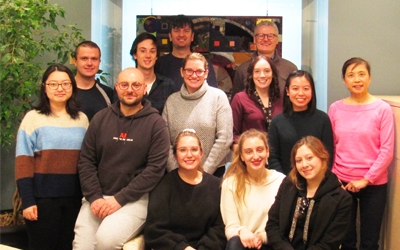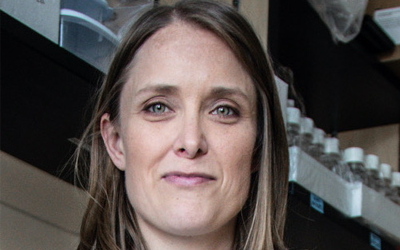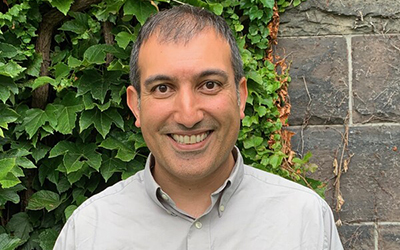Dr. Michael Schlossmacher, Ottawa Hospital Research Institute
$50,000 over 1 year, funded by Parkinson Society British Columbia through the Parkinson Canada Research Program during the 2019 – 2021 research funding cycle
Project description:
Two key factors can contribute to the development of Parkinson’s disease: inflammation and genetics. The former is a response to injury or infection, while the latter is one of the unique physical features that defines each of us.
Neither factor alone may be sufficient to cause this disease and its steady breakdown of the nervous system, which means if you can correct one of the two factors, you might halt the entire process.
Dr. Michael Schlossmacher, a member of the University of Ottawa Research Institute, is focusing on the link between inflammation and the mutation of a specific gene, called LRRK2, found in people with Parkinson’s disease.
This work changed profoundly with the discovery that the LRRK2 mutation also showed higher levels of particular chemicals known as Reactive Oxygen Species (ROS) when there was an inflammatory stimulus, the body’s response to an inflammation.
“These molecules apparently respond to inflammation throughout the body, including in the brain and the central nervous system,” says Schlossmacher.
The results of this work were recently published in the high-profile journal Science Translational Medicine, where a Canadian team concluded the LRRK2 gene could represent a crucial controlling mechanism for inflammation within the body.
Restoring the gene’s function could help identify the underlying problem in Parkinson’s disease.
“I wanted to work in a field that makes a difference. I want something that I know can make a meaningful difference. For me it was the link to patients, so that you can put a face on your project.”
Schlossmacher and his team, where Dr. Bojan Shutinoski is the key co-investigator, are now examining these biochemical processes in mice that have the mutated form of the LRRK2 gene. If they can identify a specific mechanism that is responsible, it might be possible to halt the progression of Parkinson’s by eliminating this cause.
In the meantime, the presence of elevated inflammation in the body, in combination with LRRK2 mutation, could mean an increased risk for developing Parkinson’s disease.
Schlossmacher and his colleagues are eager to find the causes of Parkinson’s disease and discover ways to treat and diagnose it as early as possible. “I have confidence that it’s possible to improve the treatment of Parkinson’s disease,” he says.
Reproduced with permission from Parkinson Canada.







